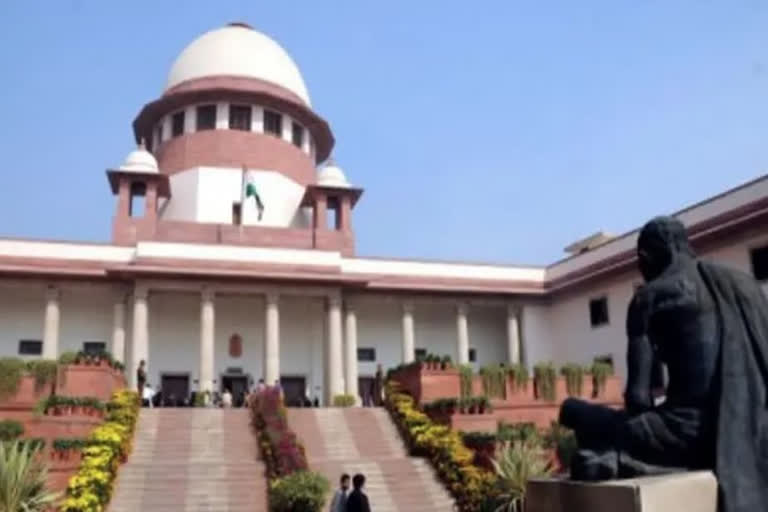New Delhi : Supreme Court, by a majority view of 3:2, has upheld the pleas challenging validity of Constitution amendment providing 10 per cent Economically Weaker Section (EWS) quota in admissions and government jobs. Though there was a difference of opinion between among the five member bench of the Supreme Court. While three members batted in favour of the 10 percent quota and two including Chief Justice of India went against the pleas.
The top court said the law on EWS quota does not violate the basic structure of the Constitution. CJI Uday Umesh Lalit says there are four different judgements on pleas challenging EWS quota. Justice Dinesh Maheshwari upholds 103rd constitutional amendment for EWS quota, says it does not violate basic structure of Constitution. Justices Bela M Trivedi, J B Pardiwala also uphold EWS quota in admissions, govt jobs. Justice S Ravindra Bhat dissents, strikes down constitution amendment on EWS quota in his minority view. Justice Bhat says 50 per cent ceiling on quota cannot be breached and EWS quota has to go.
The Supreme Court pronounced its judgment on Monday on a clutch of petitions challenging the validity of the 103rd Constitution amendment, providing 10 per cent reservation to economically weaker sections (EWS) persons in admissions and government jobs. A five-judge Constitution bench, headed by Chief Justice UU Lalit and also comprising Justices Dinesh Maheshwari, S. Ravindra Bhat, Bela M. Trivedi and J.B. Pardiwala had reserved the judgment on September 27.
The marathon hearing in the case lasted for nearly seven days, where a battery of senior lawyers argued for the petitioners and(then) Attorney General K.K. Venugopal and Solicitor General Tushar Mehta defended the EWS quota. In the rejoinder arguments, legal scholar Dr. G Mohan Gopal, representing one of the petitioners, argued that socially and educationally backward class was a category, which united all categories as backward classes - based on social, economic, and political backwardness. He contended that compartmentalisation of classes, the quality of forwardness being required as a prerequisite for granting reservations opposed the basic structure of the Constitution.
Earlier, Gopal had argued that the 103rd amendment is a fraud on the Constitution and the ground reality is that it is dividing the country along caste lines. He emphasised that the amendment is an attack on the constitutional vision of social justice and in his state, which is Kerala, he is not happy to say that the government issued an order for EWS and the title was 'caste' and they were all most privileged castes in the country.
Chronology of EWS
Jan 8, 2019: Lok Sabha clears the 103rd Constitution amendment Bill.
Jan 9: Rajya Sabha clears the 103rd Constitution amendment Bill.
Jan 12: Ministry of Law and Justice issues notice, saying President Ram Nath Kovind has given assent.
Feb: New law challenged before SC.
Feb 6: SC issues notice to govt on pleas challenging amendment.
Feb 8: SC declines to stay 10 per cent EWS quota.
Sep 8, 2022: SC bench headed by CJI U U Lalit constitutes bench to hear appeals.
Sep 13: SC starts hearing arguments.
Sep 27: SC reserves order.
Nov 7: SC, by majority of 3:2, upholds validity of 103rd Constitution amendment providing 10 pc reservation to EWS in admissions, govt jobs.



